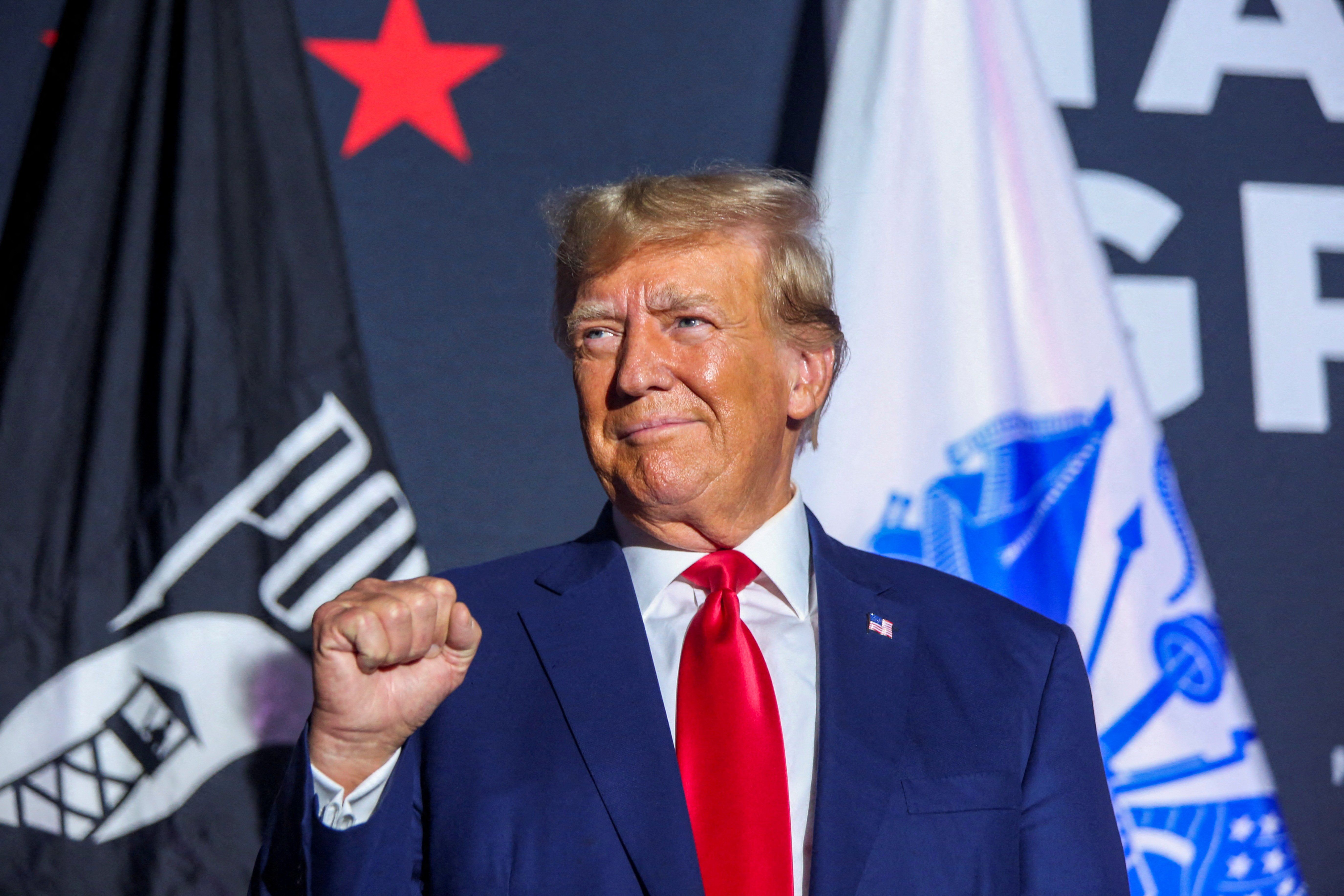When Republican presidential candidates take to the stage in Milwaukee on Aug. 23 for the first debate of the 2024 campaign, one issue will loom above all others – and you know exactly what his name is.
Whether Donald Trump appears on stage or chooses instead to offer live commentary via social media, the central question facing participants will be whether the frontrunning, hyper-charismatic, twice-impeached, thrice-indicted former president is the right candidate to carry the Republican standard into political combat next year against President Joe Biden.
How could it be otherwise? Poll aggregator FiveThirtyEight.com estimates that Trump leads Florida Gov. Ron DeSantis, his nearest Republican challenger, by nearly 40 percentage points (53.7% to 14.3%) in current polling. No other candidate reaches 8%.
The 78 felony counts Trump now faces in three separate indictments – a fourth indictment, this one in Georgia, may land soon – have failed to dent his popularity with Republican voters. And they’ve kept Trump in the headlines, depriving rivals of chances to earn the attention they need to grow their campaigns.
That’s why the other candidates on the debate stage must think carefully about what to say about Trump. In hopes of staying on the good side of millions of voters devoted to Trump, or even of becoming Trump’s vice-presidential running mate, some will dodge questions that invite criticism of the former president and train their fire on Biden, other Democrats, and the media.
But anyone who hopes to beat Trump must find chances to persuade voters that Trump can’t beat Biden. And they won’t have many high-profile opportunities to draw voter attention with Trump’s various trials dominating political news for the foreseeable future.
Who can be on the stage? To qualify for the debate, each candidate needs to be polling at at least 1% in three quality national polls or in a mix of national and state polls, and they must have at least 40,000 donors. So far, eight candidates have met the requirements including Trump, DeSantis, Tim Scott, former UN Ambassador Nikki Haley, Vivek Ramaswamy, former New Jersey Gov. Chris Christie, Doug Burgum, and former VP Mike Pence.
The other great unanswered debate question: Will Trump show?
The arguments against him appearing are obvious. Trump is winning. Big. There’s no upside to appearing alongside minor-league rivals who desperately need to break through with the huge audience that only a Trump-dominated event can deliver.
But will Trump agree to sit at home when he could be center stage? He might not want to allow accusations from other candidates to go unanswered. Particularly since he knows that many Republican voters, who get most of their news from media outlets that avoid critical coverage of Trump, might be hearing strident criticism of him directly from fellow Republicans for the first time.
That includes criticism from rival candidates like Pence, Haley, and Christie, who have worked for or supported Trump in the past.
The bottom line: The polls say Trump is the prohibitive favorite for the Republican nomination. The Aug. 23 debate will give his Republican rivals an important early opportunity to rewrite this story. Donald Trump’s decision on whether and how to respond will set the tone for the rest of the primary campaign.More For You
President Trump has transformed the presidency—and the world—in 12 short months. Harvard’s Stephen Walt joins Ian Bremmer on the GZERO World Podcast.
Most Popular
Think you know what's going on around the world? Here's your chance to prove it.
This last week has provided a distillation of US President Donald Trump’s view on how American military might should be deployed at home and abroad.
When they meet at the White House today, Venezuelan opposition leader and Nobel Peace Prize winner María Corina Machado will seek to convince US President Donald Trump that it was a mistake to back Delcy Rodríguez as interim leader of Venezuela.
